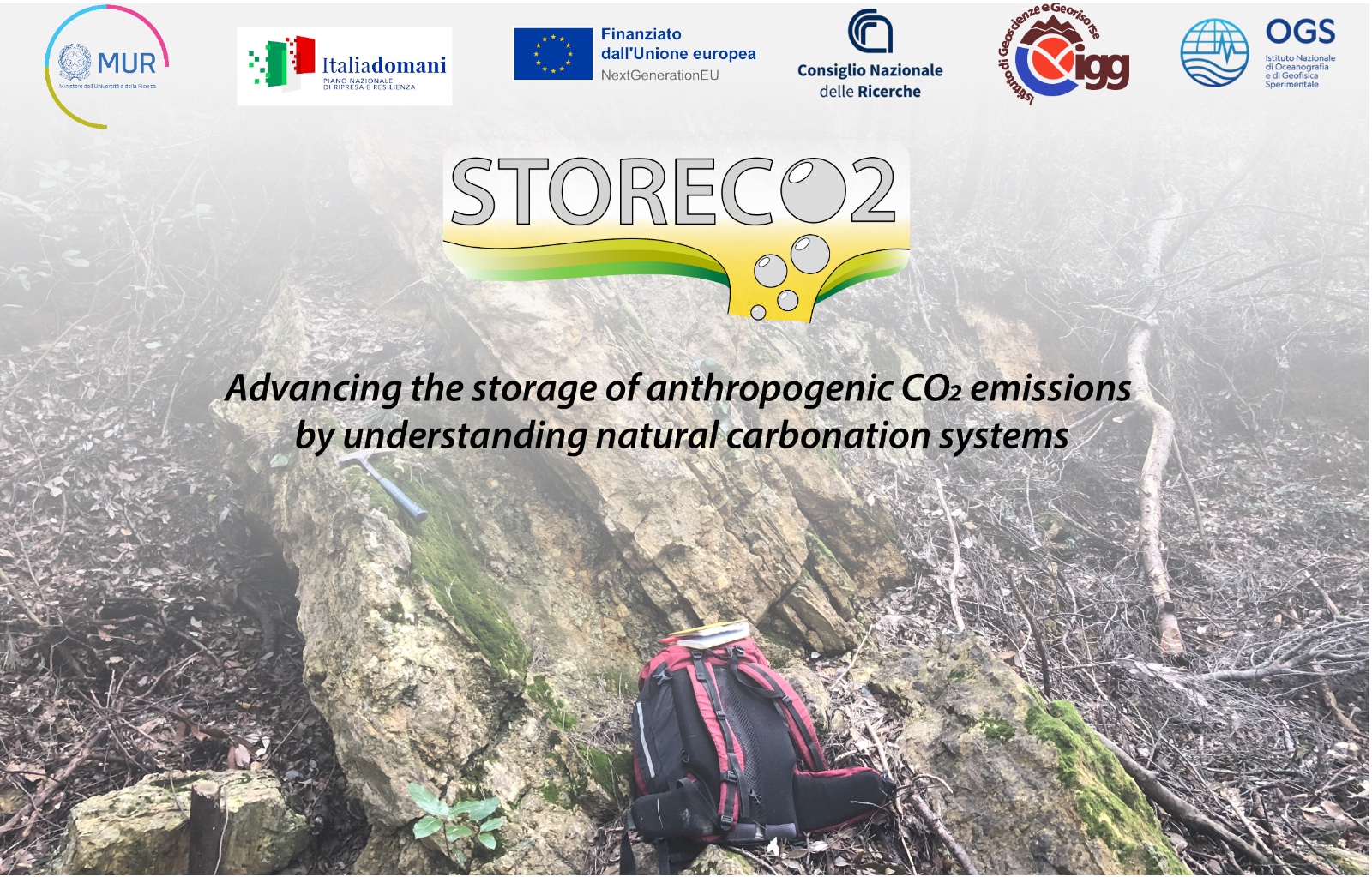STORECO2

STORECO2
Mineral carbonation is a viable method for the storage of anthropogenic CO2 emissions, providing a sustainable and long-term solution to reduce atmospheric CO2 emissions. This technique is inspired by the natural process of silicate mineral alteration, which achieves its highest efficiency in the formation of ultramafic-hosted magnesite deposits. In this process, CO2 is permanently converted into magnesite, an ecologically and biologically safe carbonate mineral. CO2 storage through mineral carbonation in serpentinites is still in a pilot phase and needs to become economically advantageous and gain public acceptance to be implemented on a large scale in the coming decades.
The STORECO2 project emerges from the collaboration between the Institute of Geosciences and Earth Resources (IGG) of the National Research Council (CNR) and the Institute of Oceanography and Experimental Geophysics (OGS). It aims to establish solid scientific foundations for the upscaling of mineralogical CO2 sequestration through an innovative approach that integrates geochemistry, petrology, and geophysical methods.
The results will contribute to the creation of a conceptual model that defines the optimal conditions to maximize the efficiency of serpentinite carbonation in in-situ and ex-situ processes. This step is crucial to accelerate the adoption of mineral carbonation as an integral part of carbon capture and storage (CCS) strategies, fundamental to achieving the EU's carbon neutrality goal by 2050.
This project is funded by the European Union as part of the Next Generation EU initiative and by the Italian Ministry of University and Research, PNRR program.
Start Date: November 30, 2023
Duration: 24 months
Project Coordinator: Dr. Andrea Rielli, CNR-IGG (andrea.rielli@igg.cnr.it)
Website: www.STORECO2.it